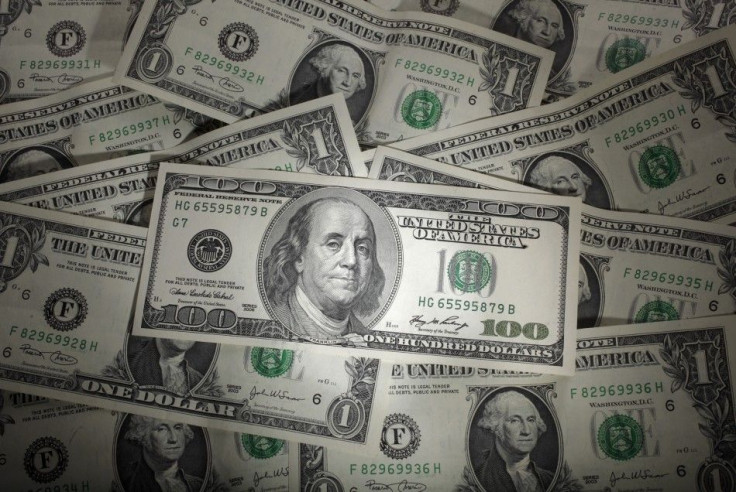The Dollar - Still Sought, After All These Financial Crisis Years
Analysis

Despite unprecedented quantitative easing by the Fed, and $1 trillion-level U.S. budget deficits, the dollar continues to hold its own against a basket of the world's other, major currencies.
The U.S. Dollar Index, which tracks the greenback against a basket of currencies, was at 80.34 on Thursday at mid-day, down 0.25 percent. However, that's still higher than the low at/near 72.50 registered in the spring.
To be sure, the dollar index is down 11 percent since hitting a high at/near 90 during the financial crisis' acute stage in the winter 2009, but the decline is far from the dollar collapse some had forecast as a result of the flood of stimulus dollars hitting global markets.
A Feisty Buck
Why hasn't the dollar collapsed? There are several reasons.
First, the flood of dollars added to the market is offset by dollar-denominated wealth destruction that occurred in the U.S. stock market and housing market. In other words, while there are more dollars circulating in global financial markets, the full effect of fiscal stimulus has been muted.
Second, the dollar remains the world's primary reserve currency. The euro has served as an alternate dollar, but that new role may not hold, if Europe does not resolve its sovereign debt crisis in a way that also protects the value of the euro over time. (The focus is on Italy now, but debt concerns also pertain to Spain, Portugal and Greece.)
As the above suggests, achieving is a bit of trick for European policy makers: if they don't provide an adequate bailout for debt-laden countries, the eurozone risks a default and/or contagion - another wave of the financial crisis. However, if eurozone leaders provide a bailout that's too large and/or that asks bond holders to sacrifice too much, they risk increasing inflation, weakening the euro or losing the confidence of lenders.
All of the aforementioned problems facing the Eurozone has prompted institutional investors to take a more-cautious stance toward the euro as a reserve currency. Investors still want to diversify in to euros, but as of the now, the euro is not going to displace the dollar as the world's primary reserve currency.
Further, while various forums/ international meetings have talked about the establishment of new, global currrency that could be a counter to, if not a replacement of the dollar, nation-states meeting have been unable to determine how national-level monetary policy could coordinated to enable the creation of the new currency, and what constraints would be placed on fiscal policy. Moreover, as Europe has found out, establishing a currency without coordinating both monetary and fiscal policy is a prescription for a policy headache.
Third, the United States, despite its large budget deficit, trade deficit, slow-growth economy, and the seemingly continual partisan fight between Democrats and Republicans, the U.S. economy still, in many ways, remains the envy of the world.
Historically, the U.S.'s economic system has proven to be remarkably flexible and resilient -- able to withstand losses of whole sectors and, via ingenuity and new technologies, create new engines of both GP growth and job growth. Still, economists caution that no two recovery cycles are identical and this cycle -- the globalization era with its lower cost structure -- will present the toughest hurdles for the nation's job creation machine since the demobilization at the end of World War II.
In other words, there are still several unknowns regarding the structure of the U.S. economy; even so, institutional investors still view the U.S. as a promising place to deploy capital. That attractiveness boosts the value of dollar-denominated assets, and that obviously supports the dollar's value.
Greenback Poised to Make A Comeback?
The dollar in the initial 11 years of the 21st century has taken it on the chin -- it's been its toughest period since the stagflation period of the mid/late 1970s. Further, until policy makers can find ways to increase U.S. GDP growth to at least three percent per year, the dollar will likely struggle to gain value versus the pound, yen, Swiss franc, Canadian dollar and Australian dollar.
But long-term the dollar's prospects remain at least as promising the world's other major currencies and better than the euro. Institutional investors - the big guns who determine the value of stocks, bonds, and other assets -- are saying as much with their willingness to hold a substantial amount of dollars, despite the U.S.'s worst economic and financial problems since the Great Depression.
In their view, the dollar is down, but not out.
© Copyright IBTimes 2025. All rights reserved.





















